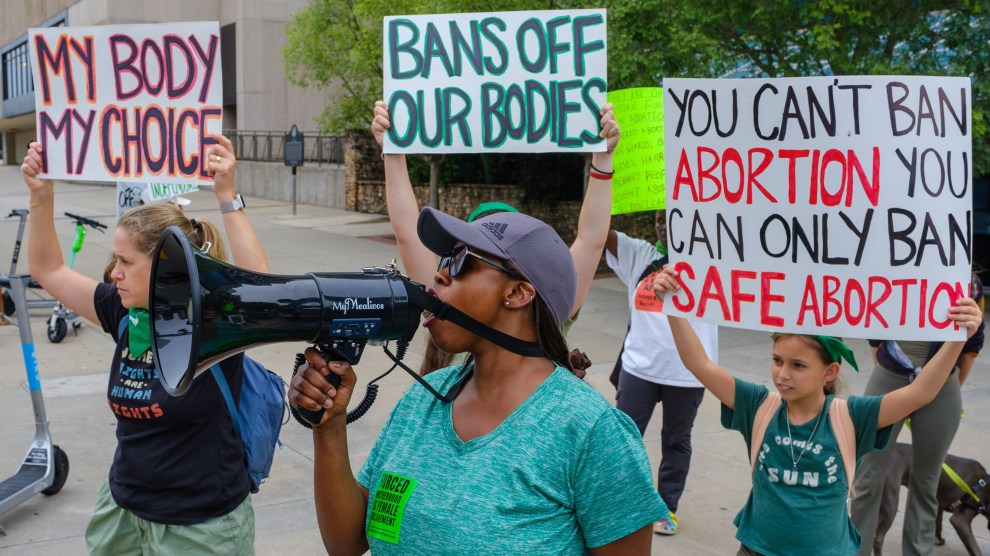
Arvin Temkar/The Atlanta Journal-Constitution/Zuma
The people who write laws banning abortion are usually not doctors. As a result, medical providers in states that have restricted abortion access after the fall of Roe v. Wade have been left in the dark about when the termination of a pregnancy is legally permitted. One particular point of confusion: How close must a woman be to dying to qualify for an abortion exemption to “save the life of the mother”?
In new guidance, the American Medical Association tried to clear things up, advising that medical providers should act in the interest of their patients’ well-being—even if it means violating the law.
“Caught between good medicine and bad law, physicians struggle to meet their ethical duties to patients’ health and well-being, while attempting to comply with reckless government interference in the practice of medicine that is dangerous to the health of our patients,” AMA president Dr. Jack Resneck said in a statement following the agency’s interim meeting in November, as feminist blogger Jessica Valenti pointed out. “Under extraordinary circumstances, the ethical guidelines of the profession support physician conduct that sides with their patient’s safety and health, acknowledging that this may conflict with legal constraints that limit access to abortion or reproductive care.”
In numerous instances, people have been denied health care because providers were afraid of running afoul of new abortion laws. Emergency room doctor and reproductive rights lawyer Kimberly Chernoby told my colleague Madison Pauly, “With the restrictive state laws, some physicians wouldn’t be able to intervene until either the cardiac activity had ceased or until the pregnancy had ruptured and the pregnant person was hemorrhaging.” The termination of ectopic pregnancies—which are not viable and can be life-threatening—is especially problematic. As my colleagues Kiera Butler and Maddie Oatman have reported, an Austin, Texas, pharmacy was refusing to fill prescriptions for methotrexate, which is sometimes prescribed to patients with ectopic pregnancies, because of restrictive laws recently passed in the state.
At the November meeting, AMA leaders doubled down on the association’s commitment to abortion, nothing that it would oppose criminal charges against patients and doctors when pregnancy loss results from medically necessary care; ensure that medical students continue accessing abortion training; and encourage lawmakers to codify abortion protections.
The AMA guidance is likely a relief for doctors in states with strict abortion bans who have had to weigh their obligation to provide life-saving care against the possibility that they could lose their medical license and be unable to provide that care in the future. Even in localities where prosecutors have promised not to file criminal charges against abortion providers, state medical boards—including some stacked with Republican donors—can still strip doctors of their licenses.

















